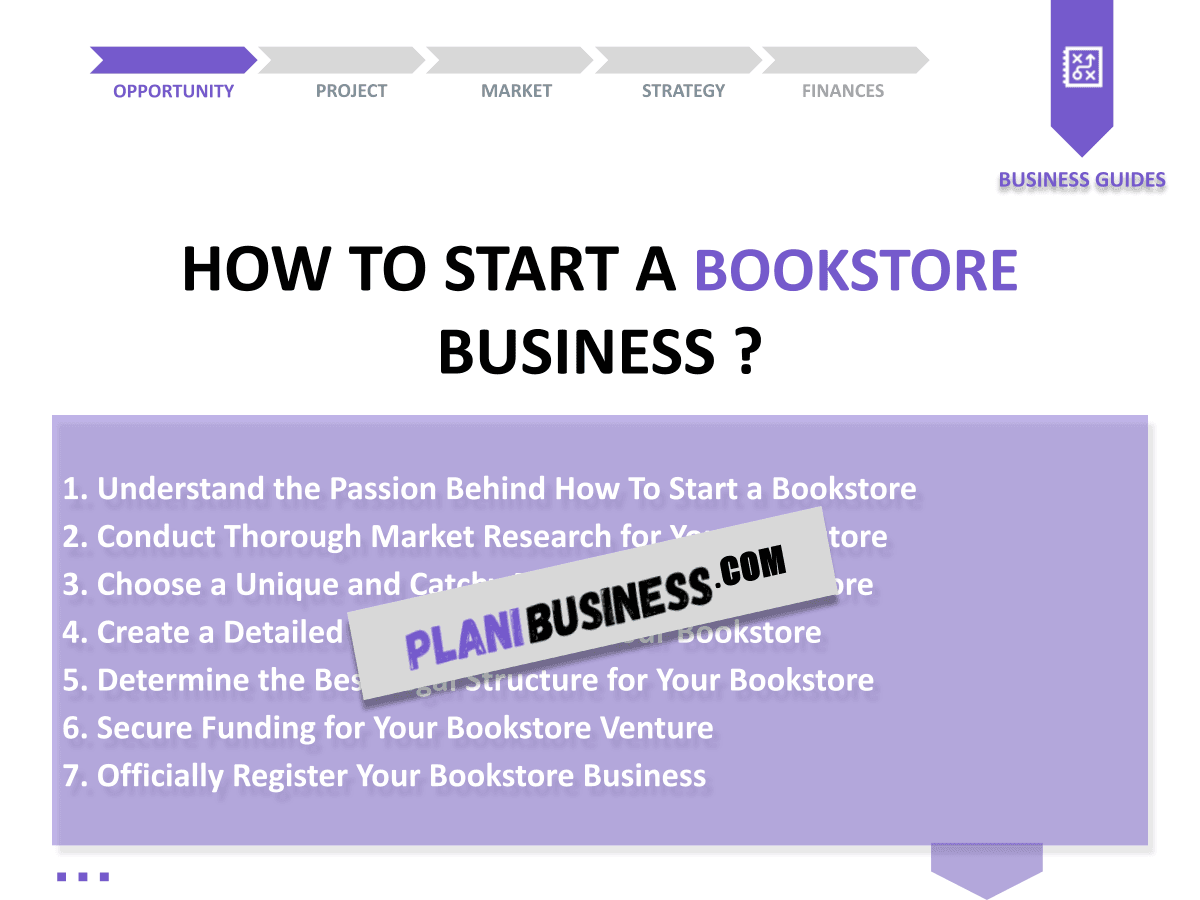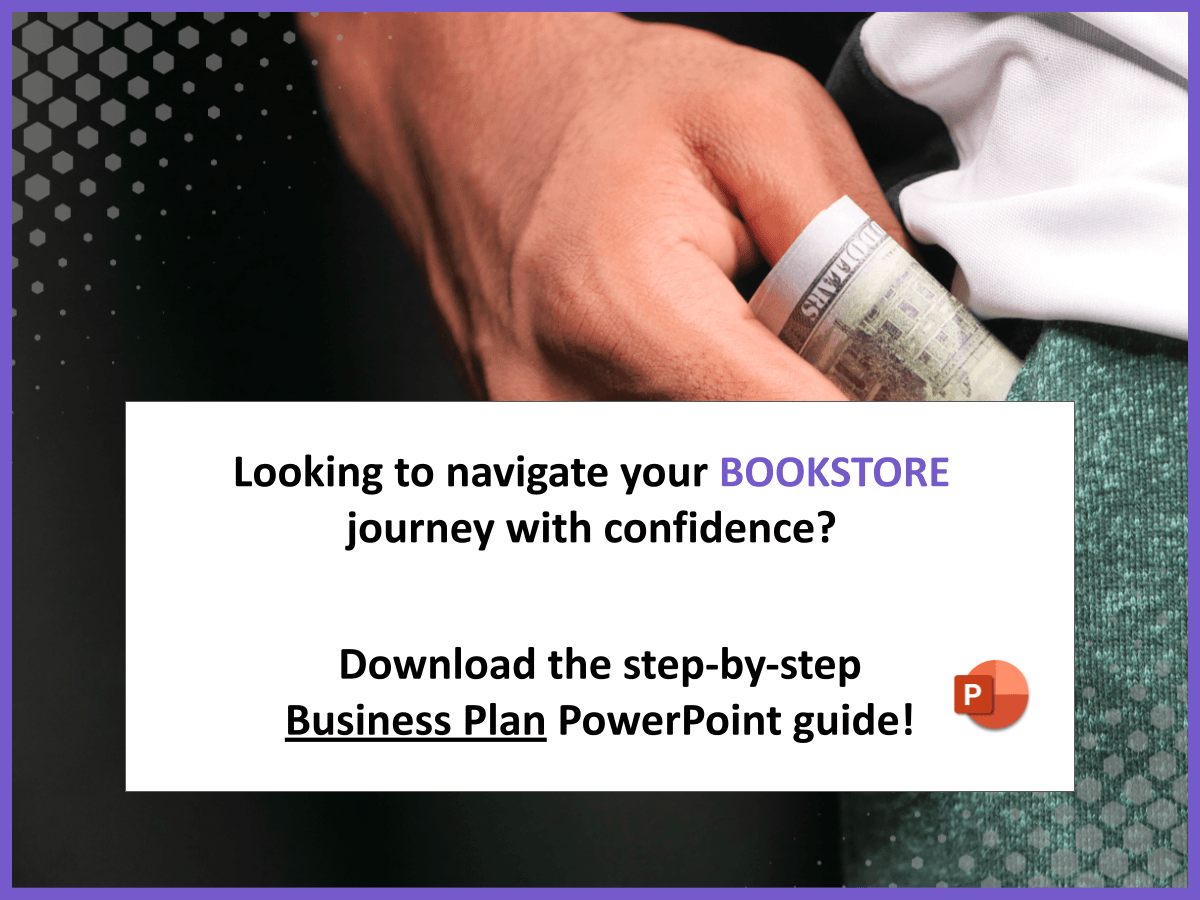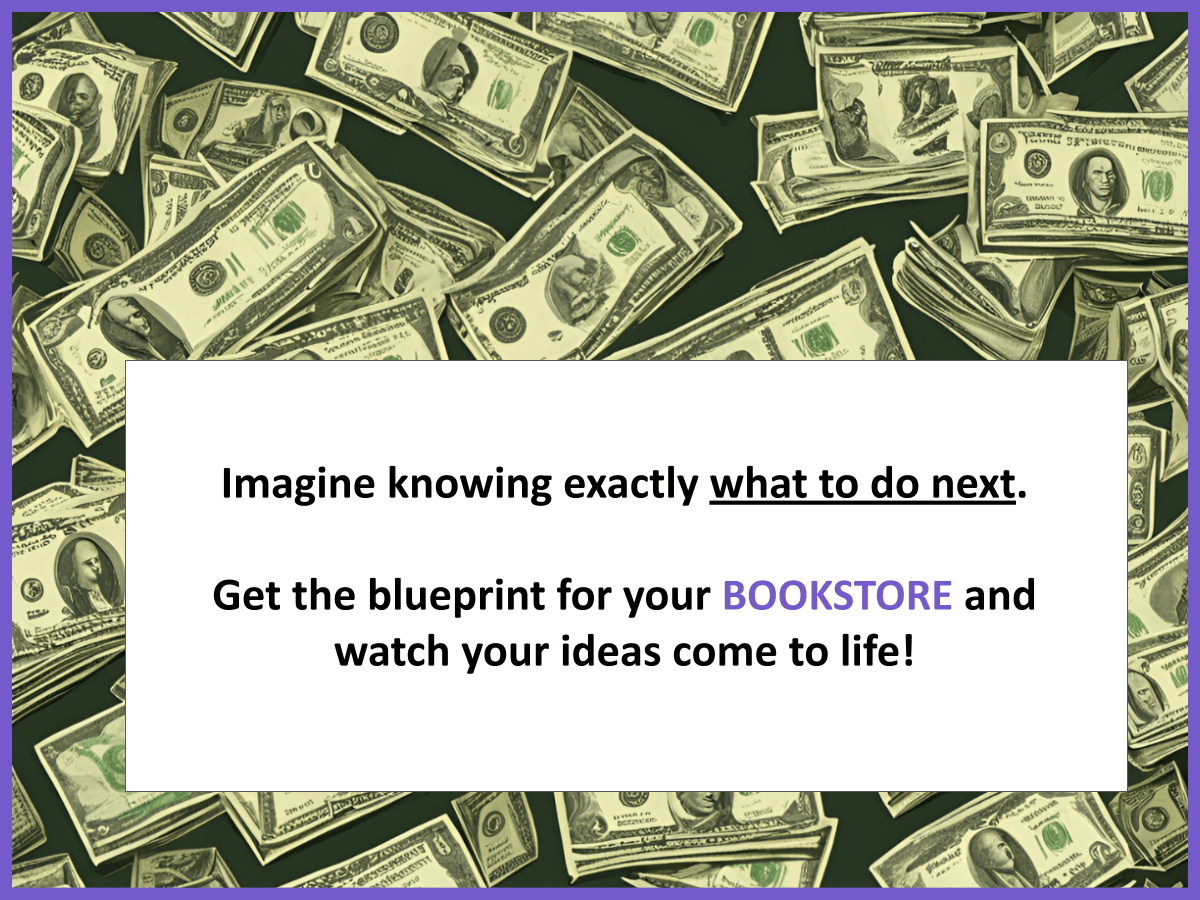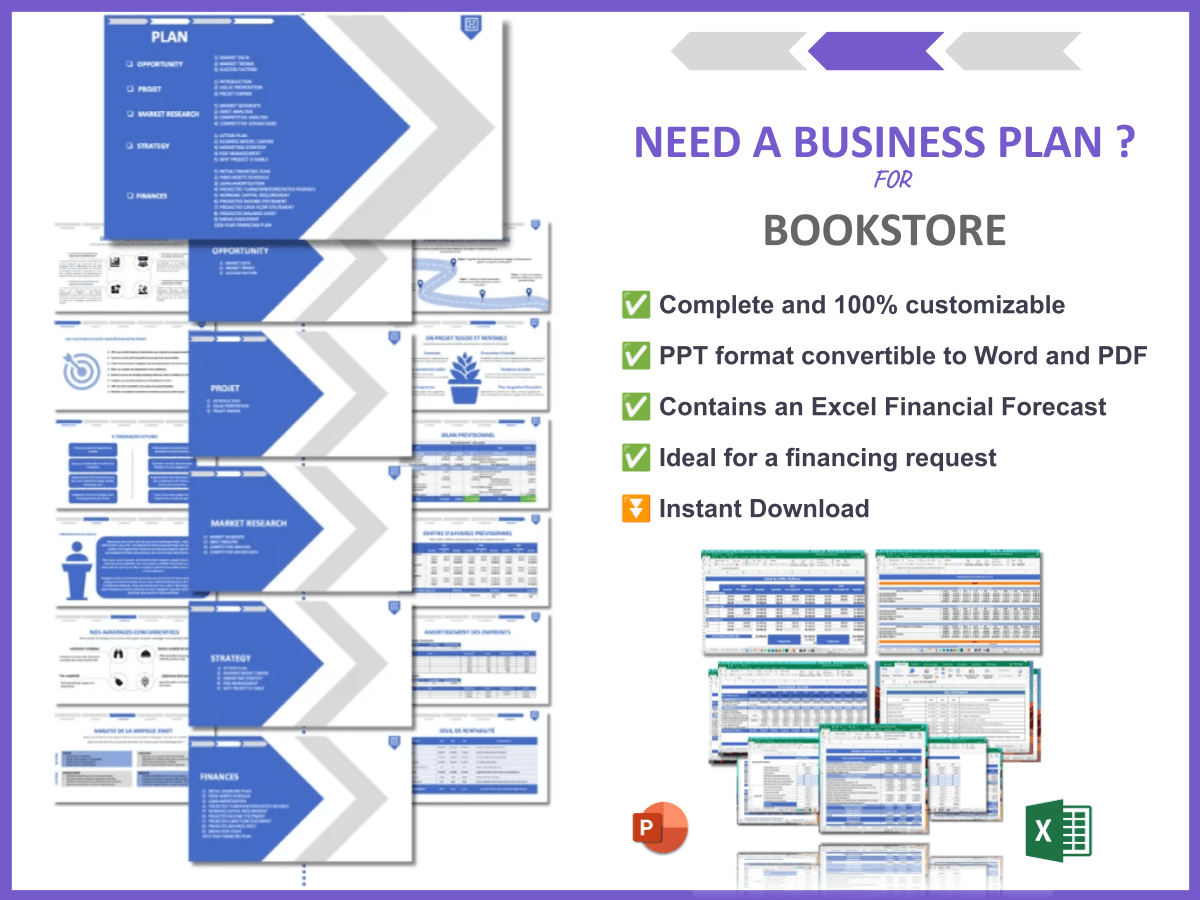Are you thinking about starting a bookstore? You’re not alone! The bookstore industry has seen a resurgence, with many people seeking that cozy, welcoming space to discover new stories. How To Start a Bookstore is more than just a business venture; it’s a chance to build a community and share your passion for reading. This article will guide you through the essential steps to launch your own bookstore successfully.
First things first, you need to understand what drives you to open a bookstore. It’s not just about selling books; it’s about creating a space where people can come together, share ideas, and foster a love for literature. Reflect on your motivations. Are you an avid reader? Do you want to promote local authors? Are you passionate about specific genres? These questions can help shape your bookstore’s identity and mission.
1. Understand the Passion Behind How To Start a Bookstore
Starting a bookstore is a journey fueled by love for books and a desire to connect with others. Think about the kinds of books you want to feature and the atmosphere you want to create. Do you envision a quiet haven for readers or a vibrant space for community events? Your personal connection to the books you sell will resonate with your customers.
- Reflect on your favorite genres and authors.
- Consider the role of bookstores in your life.
- Think about how your bookstore can serve your community.
Don’t be afraid to get creative! Perhaps you want to incorporate a café into your bookstore, or maybe you plan to host book clubs and author signings. Whatever your vision is, make sure it’s aligned with your passion for reading.
2. Conduct Thorough Market Research for Your Bookstore
Next up, you can’t just dive into opening a bookstore without knowing your market. Conducting thorough market research is key to understanding the landscape in which you’ll operate. Start by identifying your target audience. Who are they? What are their reading habits? A quick survey can provide valuable insights.
| Research Method | Description |
|---|---|
| Surveys | Gather opinions from potential customers about their reading preferences. |
| Competitor Analysis | Study other bookstores in your area to see what they offer. |
| Community Engagement | Attend local events to understand the interests of your community. |
Additionally, look into local demographics. Are there schools nearby? What’s the age range of the residents? Understanding these factors can help you tailor your inventory and services. You want to make sure you’re meeting the needs of your community while also standing out from competitors.
And don’t forget to explore online trends too! Social media platforms can be great for gauging what types of books are currently popular. Sites like Goodreads and BookTok can offer a wealth of information on what readers are excited about.
3. Choose a Unique and Catchy Name for Your Bookstore
Your bookstore’s name is the first impression potential customers will have, so it should be catchy and memorable. Think about what you want your name to convey. It should reflect the essence of your bookstore and resonate with your target audience. Here are a few tips to help you brainstorm:
- Consider the themes of the books you plan to sell.
- Think about local landmarks or cultural references that could inspire your name.
- Make sure it’s easy to pronounce and spell.
Once you have a few ideas, test them out! Ask friends and family for their opinions or even conduct a quick online poll to see which name resonates best with your community.
| Considerations | Examples |
|---|---|
| Memorable | Book Haven |
| Descriptive | Literary Oasis |
| Unique | Chapter One |
Remember, your bookstore’s name will play a huge role in your branding and marketing efforts. It’s worth spending time to find something that truly represents your vision!
4. Create a Detailed Business Plan for Your Bookstore
A solid business plan is essential for your bookstore’s success. It serves as your roadmap, helping you navigate the ups and downs of running a business. Start by outlining your goals and objectives. What do you want to achieve in the first year? How about in five years?
Next, include details about your target market, competition, and marketing strategies. You’ll also want to outline your financial projections, including startup costs, operating expenses, and expected revenue. I recommend checking out this business plan template for bookstore. It’s super detailed and can save you a ton of time!
- Executive Summary: A brief overview of your bookstore.
- Market Analysis: Insights into your target audience and competition.
- Marketing Strategy: How you plan to attract and retain customers.
- Financial Projections: Expected income and expenses for the first few years.
Remember, your business plan isn’t set in stone. As you learn and grow, you can adjust your plan to reflect new insights and changing circumstances. The important thing is to start with a clear vision and adapt as you go!
5. Determine the Best Legal Structure for Your Bookstore
Choosing the right legal structure for your bookstore is a crucial step that can impact your taxes, liability, and business operations. There are several options to consider, each with its pros and cons. Here’s a quick rundown:
| Business Structure | Pros | Cons |
|---|---|---|
| Sole Proprietorship | Simple to set up and manage | Personal liability for debts |
| Limited Liability Company (LLC) | Limited personal liability | More paperwork and fees |
| Corporation | Limited liability and easier to raise capital | Complex regulations and tax implications |
When deciding on your legal structure, consider your long-term goals and how much risk you are willing to take. Consulting with a legal expert can provide valuable guidance tailored to your specific situation.
6. Secure Funding for Your Bookstore Venture
Funding is often one of the biggest hurdles when starting a bookstore. It’s essential to have a clear understanding of your startup costs, which can include inventory, rent, utilities, and marketing expenses. Once you have a budget in place, you can explore various funding options:
- Personal Savings: The most straightforward option, but it carries personal financial risk.
- Bank Loans: Can provide substantial funding but often requires a solid business plan and good credit.
- Investors: Bringing in investors can help with funding, but you may have to give up some control over your business.
Additionally, look into local grants and small business competitions that may offer financial support. Don’t forget to prepare a solid pitch if you plan to seek investment. Make sure to highlight your unique selling points and market potential.
Remember, securing funding can be challenging, but with thorough planning and research, you can find the right sources to bring your bookstore dreams to life!
7. Officially Register Your Bookstore Business
Once you’ve settled on your business structure and secured funding, it’s time to officially register your bookstore. This step is crucial for making your business legitimate and protecting your personal assets. Here’s how to go about it:
- Choose a Business Name: Make sure the name you’ve selected is unique and not already in use. This can often be checked through your local business registry.
- Register with the State: Depending on your location, you may need to register your business name with the state government. This often involves filing paperwork and paying a fee.
- Obtain an Employer Identification Number (EIN): If you plan to hire employees or operate as a corporation or LLC, you’ll need an EIN from the IRS.
Don’t overlook local regulations! Some cities or counties may have additional requirements, such as zoning permits. Check with your local government to ensure you have everything covered. This registration process can feel overwhelming, but taking it step by step can simplify things.
8. Obtain Necessary Licenses and Permits for Your Bookstore
After registering your business, the next step is to obtain the necessary licenses and permits to legally operate your bookstore. Different areas have different requirements, so it’s important to do your homework. Here are some common licenses you might need:
- Business License: A general license to operate your business.
- Sales Tax Permit: If you’re selling physical books, you’ll likely need a permit to collect sales tax.
- Sign Permit: If you plan to put up a sign for your bookstore, check if you need a permit for that as well.
It’s a good idea to compile a checklist of all the licenses and permits required in your area. This will help you stay organized and ensure that you don’t miss any important steps. Remember, failing to secure the proper licenses can result in fines or even the closure of your business, so it’s worth taking the time to get it right!
9. Set Up Financial Management Systems for Your Bookstore
Once your bookstore is officially registered and you have the necessary permits, it’s time to set up your financial management systems. This is crucial for tracking your income and expenses effectively. Here are some key steps to consider:
- Choose Accounting Software: There are various options available, such as QuickBooks, FreshBooks, or Xero. Each has its features, so choose one that fits your needs.
- Open a Business Bank Account: Keeping your personal and business finances separate is essential. This will make accounting easier and provide a clearer picture of your business’s financial health.
- Set Up a Budget: Create a detailed budget that outlines your expected income and expenses. This will help you monitor your cash flow and make informed financial decisions.
Consider consulting a financial advisor to help you set up these systems effectively. It can be incredibly beneficial to have professional guidance, especially if you’re not familiar with bookkeeping or accounting practices.
| Accounting Software | Key Features |
|---|---|
| QuickBooks | Invoicing, expense tracking, and tax preparation. |
| FreshBooks | User-friendly interface and excellent customer support. |
| Xero | Cloud-based access and real-time collaboration features. |
By establishing a solid financial management system, you’ll be better prepared to handle the challenges that come with running a bookstore.
10. Establish a Strong Brand Identity for Your Bookstore
Your bookstore’s brand identity is what sets you apart from the competition and helps you connect with your audience. A strong brand will create recognition and loyalty among your customers. Here are some steps to help you develop your brand identity:
- Create a Memorable Logo: Your logo should reflect the spirit of your bookstore. Consider hiring a graphic designer or using online tools to create one that resonates with your audience.
- Define Your Brand Voice: Your communication style, whether it’s formal, casual, or playful, should be consistent across all platforms, including your website, social media, and in-store signage.
- Choose Your Color Palette: Colors evoke emotions and can influence customer perceptions. Choose a color scheme that reflects the atmosphere you want to create in your bookstore.
Once you’ve established these elements, make sure to incorporate them into your marketing materials and your store’s layout. For example, if your brand is centered around cozy reading nooks, make sure your store design reflects that!
Don’t forget, your brand identity can evolve over time. As your bookstore grows and your audience changes, be open to refining your brand to better connect with your customers.
11. Build an Engaging Website for Your Bookstore
In today’s digital age, having a professional website is essential for any bookstore. Your website acts as a virtual storefront and can help attract customers both online and offline. Here are some key elements to include:
- Online Store: Allow customers to browse and purchase books directly from your website. Make sure the process is user-friendly.
- Event Calendar: Include a calendar that showcases upcoming events like book signings, readings, or community gatherings.
- Blog or Book Reviews: Share your thoughts on new releases or classic favorites. This can position you as an authority in the literary community and keep your audience engaged.
Additionally, ensure your website is optimized for mobile devices. Many customers will access your site from their phones, so a responsive design is crucial.
| Website Feature | Benefits |
|---|---|
| Online Store | Increases sales opportunities beyond foot traffic. |
| Event Calendar | Encourages community engagement and customer visits. |
| Blog | Enhances SEO and builds a loyal readership. |
Investing time and resources into your website can significantly benefit your bookstore in the long run.
12. Develop Effective Marketing Strategies for Your Bookstore
Once your bookstore is up and running, it’s time to get the word out! Developing effective marketing strategies is key to attracting and retaining customers. Here are some ideas:
- Social Media Marketing: Use platforms like Instagram and Facebook to showcase new arrivals, promote events, and engage with your audience. Visual content works wonders for attracting attention!
- Email Newsletters: Build an email list and send out regular newsletters featuring upcoming events, new book releases, and special promotions. This keeps your customers informed and engaged.
- Local Partnerships: Collaborate with local schools, libraries, and community organizations. Hosting joint events can help expand your reach and build goodwill in the community.
Don’t forget about traditional marketing methods! Flyers, local newspaper ads, and community bulletin boards can still be effective in reaching your audience. The key is to be consistent and creative in your approach.
| Marketing Strategy | Expected Outcome |
|---|---|
| Social Media Campaigns | Increased brand awareness and customer engagement. |
| Email Promotions | Higher conversion rates and repeat visits. |
| Community Events | Strengthened community ties and new customer acquisition. |
With the right marketing strategies in place, you can create a buzz around your bookstore and attract a loyal customer base.
13. Assemble a Passionate Team for Your Bookstore
Your bookstore is only as good as the team behind it. Hiring the right people can make all the difference in creating a welcoming environment for customers. Here are some tips for assembling your dream team:
- Hire Book Lovers: Look for staff who are passionate about books and knowledgeable about different genres. Their enthusiasm will enhance the customer experience.
- Provide Training: Invest in training your staff on customer service, inventory management, and the specifics of your bookstore’s offerings. A well-informed team can help customers find exactly what they need.
- Encourage Community Involvement: Get your team involved in local events or book fairs. This not only builds morale but also promotes your bookstore in the community.
Remember, a happy team leads to happy customers! Foster a positive workplace culture where everyone feels valued and excited to contribute to the bookstore’s success.
As you build your bookstore, keep these steps in mind. With passion, planning, and a great team, you can create a beloved local haven for readers.
Conclusion
Starting your own bookstore can be an incredibly rewarding journey, filled with opportunities to share your love for literature with your community. From conducting thorough market research to assembling a passionate team, each step plays a vital role in setting your bookstore up for success. Remember, the more effort you put into planning and execution, the more likely you are to thrive in this competitive landscape.
As you embark on this exciting venture, consider diving deeper into essential strategies by exploring our articles on creating a SWOT Analysis for your bookstore and learning about How To Write a Bookstore Marketing Plan. These resources can provide you with valuable insights and actionable steps to enhance your bookstore’s potential!
FAQ
- What are the initial costs to start a bookstore?
Initial costs can vary widely but typically include rent, inventory, licenses, and marketing. A detailed budget is essential to ensure you have enough funds to cover these expenses.
- How can I choose the right location for my bookstore?
Look for areas with high foot traffic, proximity to schools or universities, and a community that values reading. Conducting local market research can provide insights into the best location.
- What type of inventory should I carry?
Focus on books that align with your target audience’s interests. Consider a mix of popular titles, local authors, and niche genres to attract diverse customers.
- How can I effectively market my bookstore?
Utilize social media, email newsletters, and local partnerships to promote your bookstore. Engaging with the community through events can also enhance visibility.
- Do I need a business plan for my bookstore?
Yes, a detailed business plan is crucial for outlining your goals, strategies, and financial projections. It serves as a roadmap for your bookstore’s growth.
- What legal requirements should I be aware of?
Make sure to register your business, obtain necessary licenses, and comply with local regulations. It’s important to research the specific requirements for your area.
- How can I engage with my customers?
Host book signings, readings, and community events to foster a connection with your customers. Building a loyalty program can also encourage repeat visits.
- What’s the best way to manage inventory?
Use inventory management software to track sales and stock levels. Regularly reviewing your inventory can help you identify which books sell best and which need to be discounted.
- How do I create a strong brand identity?
Develop a memorable logo, define your brand voice, and choose a color palette that reflects your bookstore’s personality. Consistency in branding is key to recognition.
- Is it beneficial to have an online presence?
Absolutely! An online store can broaden your reach, allowing customers to purchase books even if they can’t visit your physical location. A well-designed website enhances credibility and accessibility.







